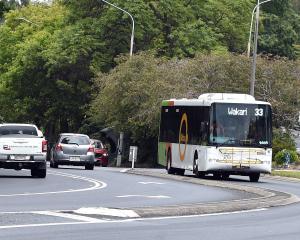A Dunedin branch of the Science Communicators Association is being launched tomorrow with an event at the Otago Museum about alcohol and the brain. Health reporter Eileen Goodwin spoke to organisers.
It seems ‘‘crazy'' that Dunedin, home to the biggest science communication graduate teaching centre in the world, does not have its own branch of the national body of science communicators, says science communication lecturer Dr Fabien Medvecky.
The Dunedin branch of the Science Communicators Association of New Zealand will be launched at the branch's first public event at the Otago Museum tomorrow.
Entitled Smashed: The Human Brain and Booze, the event involves a panel discussion aimed at the general public as well as the science community.
Dr Medvecky, a Scanz national committee member who moved to Dunedin eight months ago, said while the national body had Dunedin members, having a branch meant hosting local events.
‘‘It's crazy that we're not [a branch]. It's time for us to interact with this body.
‘‘We actually have the biggest graduate teaching centre for science communication in the world.''
Scanz Dunedin branch co-ordinator Shanti Campbell said the first event would examine the science of alcohol and the brain, and how it could be communicated, in a reasonably informal setting.
Its focus is not the politics of the alcohol debate, but that aspect is expected to be raised.
‘‘It's not about telling people ‘don't drink, this is what it does to people'.
‘‘It's about showing people ‘you have the right to ask questions, you have the right to know what's going on', and be able to talk about it,'' Miss Campbell said.
Science is part of many of society's fiercest debates, and Dr Medvecky said it played a major role in decision-making, but had limits.
Politicians should not always ‘‘play the science card'' when debates could not be settled with scientific fact.
An example was vaccination, over which the science was settled. It was actually a freedom debate as to whether it ought to be compulsory for the good of society, Dr Medvecky said.
‘‘One of the mistakes we make sometimes is we focus too much on science . . . climate change is largely an economic debate; vaccine is largely a freedom debate.''
Asked about recent publicity over Google considering configuring its search engine to de-emphasise results considered misinformation, such as climate change denial, Dr Medvecky could see merit in the idea.
‘‘For a while we had other forms of authority. . . for a while we had the church, then we had encyclopedias, and so now we have Google.''
He suggested it might be preferable if page results were instead given a ‘‘truth rating''. ‘‘While it's good to debate things, we want to have an idea of just how valid the things we're debating are.''
Miss Campbell was sceptical about how the Google idea could work because science was always changing. ‘‘A lot of people don't realise that science isn't truth . . . it's always just the best answer that we have at that time.''












